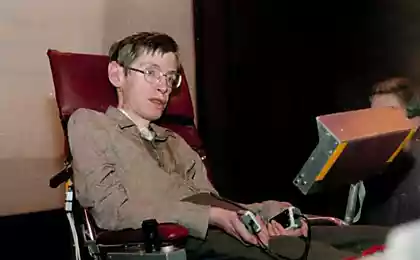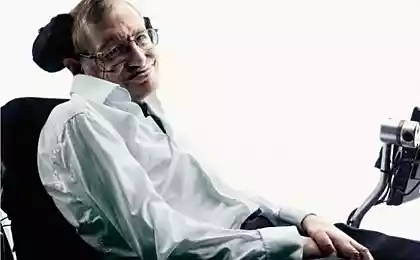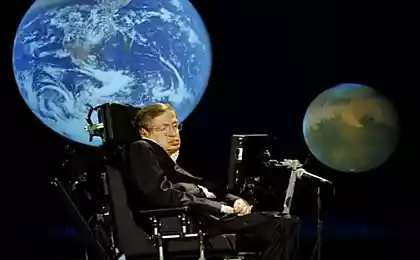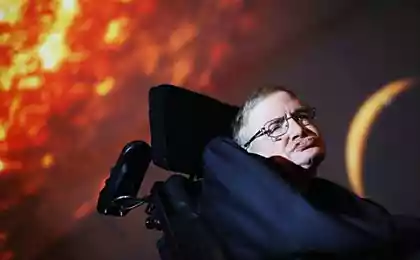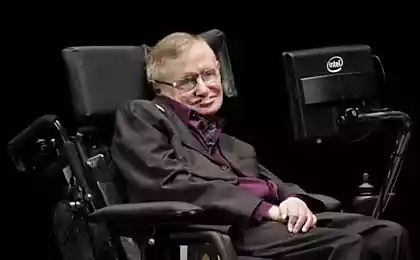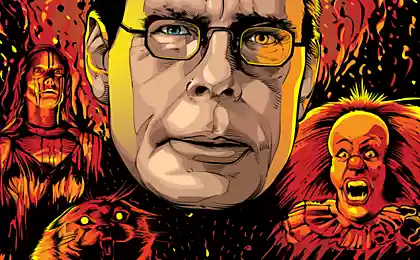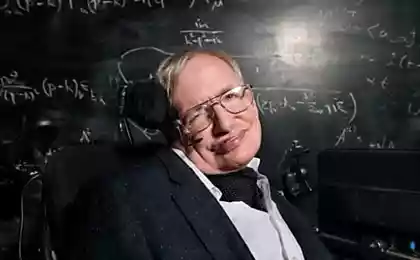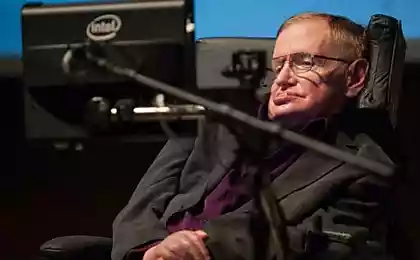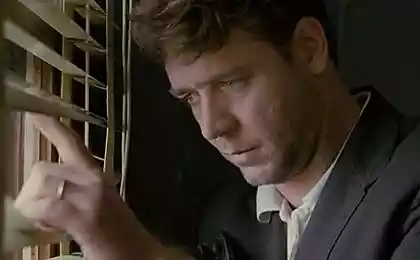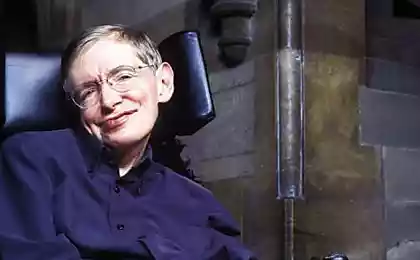492
9 books that will change your scientific Outlook
F. ball — Critical mass
How does the interaction of many people occurs human society? Are there laws of nature that govern human behavior? How some of our deeds and actions are derived the other?
These questions have troubled mankind for centuries. As soon as one realizes that most of his decisions are influenced by other people, before it opens unexpected and perhaps even disturbing predictability of the laws of development of society.
The present edition may be considered as a reference and as book to read for a wide readership.
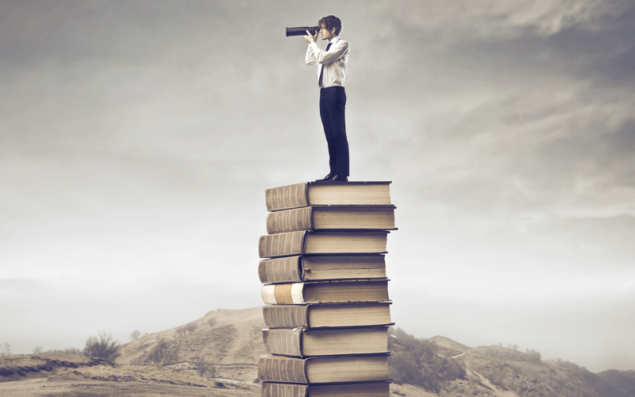
K. Zimmer — Evolution. The triumph of the ideas
Why to this day, there have been disputes about the origin of life and man on Earth? What was behind the ideas of a man painfully paving the path of new knowledge in a conservative society? As evolutionary biologists put forward and test their hypotheses and why cannot agree with the arguments of the creationists?
In search of an answer to these questions the reader will make many amazing discoveries about the life of animals, birds and insects. This book provides an understanding not so much the substantive provisions of the theory of Charles Darwin, but talks about the latest research on the processes of evolution. Shows how modern science broadens and deepens the theoretical heritage of the great scientist.
The book simply and majestically reveals the whole story of evolution, a process that continues as several billion years ago, moving all around the world.
B. Greene, The Elegant Universe
The book of Brian Greene's "the Elegant universe" — a fascinating journey through modern physics, which has never been so close to understanding how the universe works. The quantum world and the theory of relativity, the hypothesis of Kaluza—Klein and extra dimensions, the theory of super-strings and battlefield, the Big Bang and multi-universes and this is not a complete list of issues.
Using a clear analogy, the author translates complex ideas of modern physics and mathematics at the images that are understandable to everyone.
Brian Greene rips the veil of mystery from string theory to present to the world 11-dimensional Universe in which the fabric of space tears and restored, and all matter is generated by the vibrations of microscopic strings.
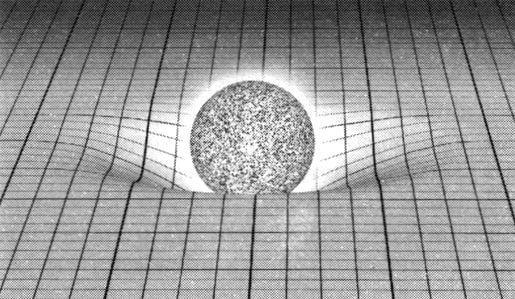
Docking R. — the Selfish gene
We created by our genes. We animals exist in order to preserve them, and serve only machines that ensure their survival, after which we just throw away. The world of the selfish gene is a world of fierce competition, ruthless exploitation, and deceit.
But what about the acts of apparent altruism observed in nature: bees who commit suicide when they sting the enemy to protect the hive, or the birds who risk their lives to warn the flock of an approaching hawk? Whether it contradicts the fundamental law of gene selfishness?
In any case: Docking shows that the selfish gene is a very crafty gene. And he cherishes the hope that the species Homo sapiens is the only on the globe — able to rebel against the intention of the selfish gene.
This book is a call to take up arms. This manual and a Manifesto, and it captures, as action-Packed novel.
A. Markov, the Birth of complexity
As a born and how the laws of life evolved on our planet? That led to the formation of multicellular organisms? How they arise and what is caused by mutations that lead to changes in life forms?
The book of doctor of biological Sciences, the famous paleontologist and popularizer of science Alexander Markov is an attempt to overcome the barrier of mutual misunderstanding between serious research and a wide reader.
"The birth of complexity" is both a fascinating story about what is happening today on the cutting edge of biological science, and at the same time — a serious attempt to summarize and systematize the knowledge accumulated by mankind in this area.
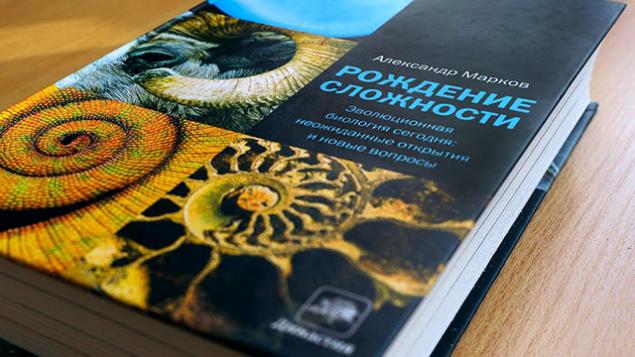
Surely you're joking, Mr. Feynman!
My masterpiece of mischief happened at the fraternity. I took a door off the hinges, carried it downstairs and hid in the basement behind the oil tank. Then I quietly went back upstairs and went to bed. Later that morning, I pretended to Wake up, and came down a little late down. Other students spun immediately and was extremely upset: the doors to their room were not, and they had to do, etc., etc. When I was coming down the stairs, they said, "Feynman, you took the door?"
C. Hawking — a brief history of time
In his book "a brief history of time" by the famous English physicist Stephen Hawking tries to answer questions of interest to us all: where did the universe, how and why it arose, what will be its end (if at all) – and makes it so exciting and accessible that the book, written in 1988, is a bestseller to this day.
N. Shubin — the universe within us
The man is in kinship not only with all living organisms, but also with the land, water and air, our planet, Galaxy and Universe. Our bodies are woven over billions of years of evolution from "star dust".
The author recounts — literally cosmic scale — the history of mankind, which began in the Big Bang.
L. Mlodinow — (Not)quite by accident
The book introduces to everyone the theory of probability, theory of random walks, science and applied statistics, history of the development of these pervasive theories, and the importance of the case law and the inevitable confusion between them exist in our daily life.published
P. S. And remember, only by changing their consumption — together we change the world! ©
Source: www.brainstorm-blog.ru/2015/06/9_20.html
How does the interaction of many people occurs human society? Are there laws of nature that govern human behavior? How some of our deeds and actions are derived the other?
These questions have troubled mankind for centuries. As soon as one realizes that most of his decisions are influenced by other people, before it opens unexpected and perhaps even disturbing predictability of the laws of development of society.
The present edition may be considered as a reference and as book to read for a wide readership.

K. Zimmer — Evolution. The triumph of the ideas
Why to this day, there have been disputes about the origin of life and man on Earth? What was behind the ideas of a man painfully paving the path of new knowledge in a conservative society? As evolutionary biologists put forward and test their hypotheses and why cannot agree with the arguments of the creationists?
In search of an answer to these questions the reader will make many amazing discoveries about the life of animals, birds and insects. This book provides an understanding not so much the substantive provisions of the theory of Charles Darwin, but talks about the latest research on the processes of evolution. Shows how modern science broadens and deepens the theoretical heritage of the great scientist.
The book simply and majestically reveals the whole story of evolution, a process that continues as several billion years ago, moving all around the world.
B. Greene, The Elegant Universe
The book of Brian Greene's "the Elegant universe" — a fascinating journey through modern physics, which has never been so close to understanding how the universe works. The quantum world and the theory of relativity, the hypothesis of Kaluza—Klein and extra dimensions, the theory of super-strings and battlefield, the Big Bang and multi-universes and this is not a complete list of issues.
Using a clear analogy, the author translates complex ideas of modern physics and mathematics at the images that are understandable to everyone.
Brian Greene rips the veil of mystery from string theory to present to the world 11-dimensional Universe in which the fabric of space tears and restored, and all matter is generated by the vibrations of microscopic strings.

Docking R. — the Selfish gene
We created by our genes. We animals exist in order to preserve them, and serve only machines that ensure their survival, after which we just throw away. The world of the selfish gene is a world of fierce competition, ruthless exploitation, and deceit.
But what about the acts of apparent altruism observed in nature: bees who commit suicide when they sting the enemy to protect the hive, or the birds who risk their lives to warn the flock of an approaching hawk? Whether it contradicts the fundamental law of gene selfishness?
In any case: Docking shows that the selfish gene is a very crafty gene. And he cherishes the hope that the species Homo sapiens is the only on the globe — able to rebel against the intention of the selfish gene.
This book is a call to take up arms. This manual and a Manifesto, and it captures, as action-Packed novel.
A. Markov, the Birth of complexity
As a born and how the laws of life evolved on our planet? That led to the formation of multicellular organisms? How they arise and what is caused by mutations that lead to changes in life forms?
The book of doctor of biological Sciences, the famous paleontologist and popularizer of science Alexander Markov is an attempt to overcome the barrier of mutual misunderstanding between serious research and a wide reader.
"The birth of complexity" is both a fascinating story about what is happening today on the cutting edge of biological science, and at the same time — a serious attempt to summarize and systematize the knowledge accumulated by mankind in this area.

Surely you're joking, Mr. Feynman!
My masterpiece of mischief happened at the fraternity. I took a door off the hinges, carried it downstairs and hid in the basement behind the oil tank. Then I quietly went back upstairs and went to bed. Later that morning, I pretended to Wake up, and came down a little late down. Other students spun immediately and was extremely upset: the doors to their room were not, and they had to do, etc., etc. When I was coming down the stairs, they said, "Feynman, you took the door?"
C. Hawking — a brief history of time
In his book "a brief history of time" by the famous English physicist Stephen Hawking tries to answer questions of interest to us all: where did the universe, how and why it arose, what will be its end (if at all) – and makes it so exciting and accessible that the book, written in 1988, is a bestseller to this day.
N. Shubin — the universe within us
The man is in kinship not only with all living organisms, but also with the land, water and air, our planet, Galaxy and Universe. Our bodies are woven over billions of years of evolution from "star dust".
The author recounts — literally cosmic scale — the history of mankind, which began in the Big Bang.
L. Mlodinow — (Not)quite by accident
The book introduces to everyone the theory of probability, theory of random walks, science and applied statistics, history of the development of these pervasive theories, and the importance of the case law and the inevitable confusion between them exist in our daily life.published
P. S. And remember, only by changing their consumption — together we change the world! ©
Source: www.brainstorm-blog.ru/2015/06/9_20.html
Tours in Italy: historic cities, popular resorts, sultry beaches
Extremely useful amaranth flour + recipe fancy bread
